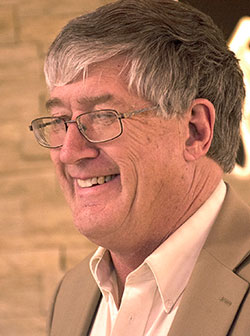New UW Extension Publications Estimate Economic Impact of Removing Federal Grazing
Published November 14, 2022

A new series of publications from University of Wyoming Extension examines the economic impacts of eliminating livestock grazing on federal land in Wyoming, Idaho and Oregon.
While some groups advocate for the removal of all federal grazing, UW Professor Emeritus David “Tex” Taylor and colleagues John Tanaka and Kristie Maczko found that such changes would have lasting repercussions for ranchers and rural communities.
Using economic models, they estimated the potential losses associated with the removal of federal grazing from cattle ranches in the three-state region.
The study culminated in a series of four reports detailing the economic impacts on each state and the region overall. In all cases, the removal of federal grazing resulted in significant economic losses. This has implications for communities across the West.
“It is not just a one-state issue,” Taylor says. “Sixteen states in the West have significant amounts of federal grazing and would be affected by changes in that grazing use.”
In addition to estimating direct economic impacts to ranchers, the study analyzes secondary economic impacts to feed stores, veterinarians and bulk fuel dealers. It is important to not overlook the impacts on surrounding communities, Taylor says.
Particularly in the most rural areas, the models revealed how much the removal of federal grazing could affect not only the livelihoods of producers, but also those who depend indirectly on the ranching community.
Cumulative effects over longer time horizons also were considered. Due to the 10-year life span of federal grazing permits, removal of federal grazing would affect more than the profits associated with a single year of production. Furthermore, if the 10-year permits were continually renewed, economic losses would compound over time.
Actual economic impacts could be substantially greater than predicted if some of the impacted ranches were unable to remain in production, the authors note.
The project was conducted through the Sustainable Rangelands Roundtable. Funding was provided by the Beef Checkoff program through the National Cattlemen’s Beef Association.
To view the new publications and download free copies, go here.
About University of Wyoming Extension
Since 1914, UW Extension has provided lifelong learning opportunities to Wyoming citizens across the state. With roots in agricultural education, UW Extension supports rural communities facing contemporary challenges and changes. UW Extension brings the university’s resources to each of the state’s 23 counties and the Wind River Indian Reservation. To learn more about UW Extension, call (307) 766-5124 or visit www.uwyo.edu/uwe.

